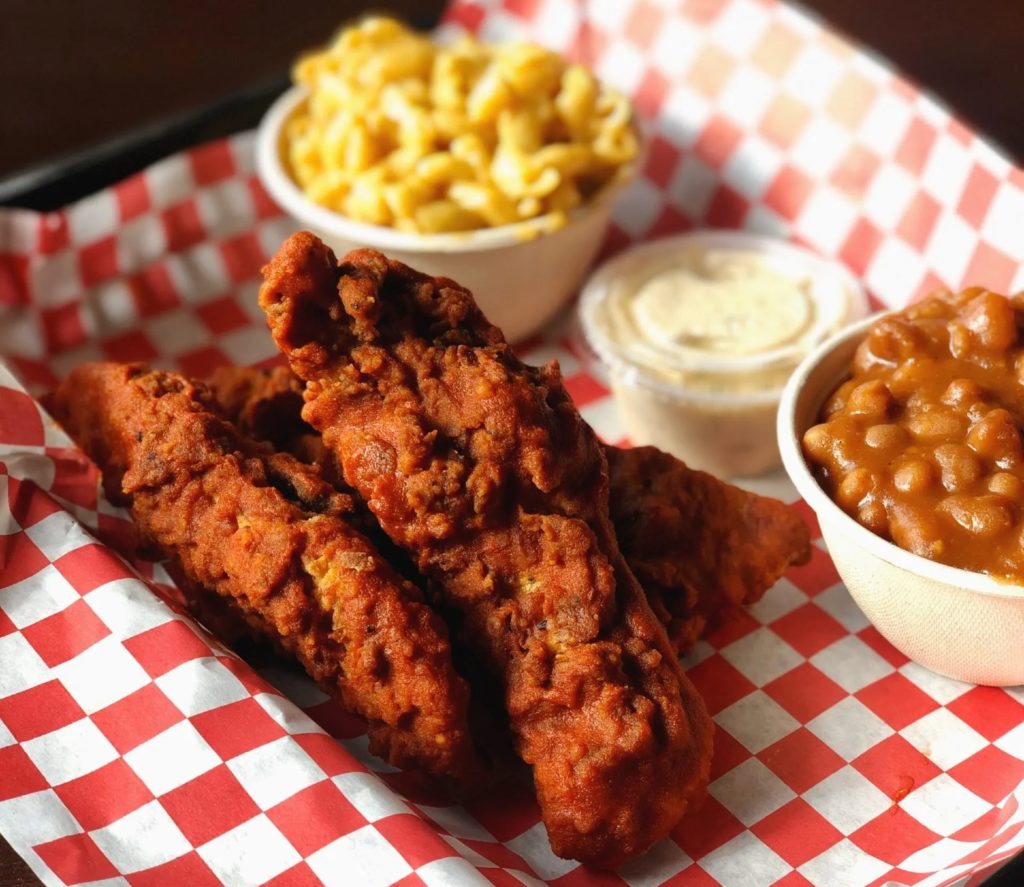
Hot chicken is Nashville’s most famous dish. It has a cult following, a mythological backstory and humble beginnings. But it is much more than just a meal — it tells a story about gentrification and race in Nashville.
We take a deep dive into what hot chicken says about the city’s culture. We’re joined by the matriarch’s of hot chicken – Ms. André Prince of Prince’s, and Ms. Dollye Matthews of Bolton’s – to explore the legacy of hot chicken, and what it was like to watch it spread like wildfire.
But first, we’re joined by two people pushing for changes at the Natchez Trace Bridge – a mother who lost her son by suicide there and a woman who survived a suicide attempt. They update us on recent temporary safety measures put in place at the bridge.
Guests:
- Trish Merelo, co-founder of the Natchez Trace Bridge Barrier Coalition
- Briana Brown, mental health speaker and advocate
- Caroline Randall Williams, host of Hungry For Answers
- Rachel Louise Martin, author of Hot, Hot Chicken: A Nashville Story
- Dollye Matthews, general manager of Bolton’s Spicy Chicken & Fish
- André Prince, owner of Prince’s Hot Chicken Shack
Additional reading:
- Bitter Southerner: How Hot Chicken Really Happened
- Tennessean: Schmitt: What’s happening to all of our authentic Nashville hot chicken shacks?
- Eater: Where to Eat Nashville Hot Chicken in its Hometown
- WPLN: Nashville’s 100+ Black-Owned Food Establishments
If you know someone in crisis, call the National Suicide Prevention Lifeline at 1-800-273-TALK (8255) or text Crisis Text Line (text HELLO to 741741).


